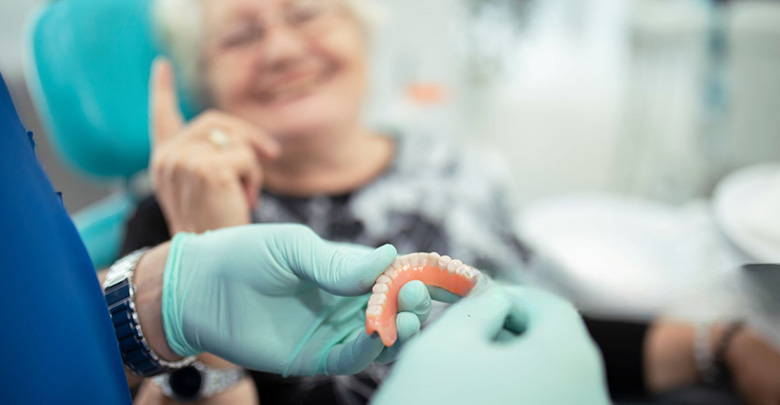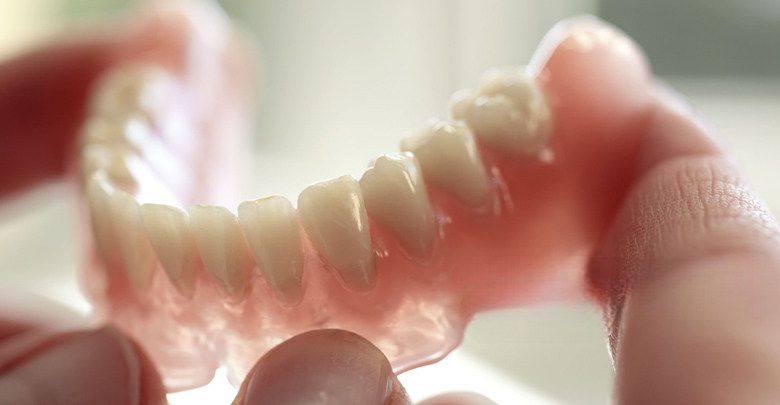
Table of Contents
What Are Dentures?
Dentures are fake teeth. They help old people eat and talk. Some people lose all their teeth. Some lose just a few teeth. Dentures can help! [^1]
Teeth are very important. They help us:
- Eat food
- Talk clear
- Smile big
- Look nice
Many old people do not have all their teeth. In fact, 19% of people over 65 have no teeth at all. Almost half (44%) wear full or partial dentures. [^2]
Types of Dentures for Old People
There are many kinds of dentures. Let’s look at them:
Full vs. Partial Dentures
Full dentures replace all teeth. They sit on your gums. They are made of acrylic resin. This is a light plastic. Some have metal frames too. Metal makes them stronger. [^3]
Partial dentures replace some teeth. You keep your good teeth. The fake teeth connect to your real teeth. This helps them stay in place.
New Kinds of Dentures
We have new ways to make dentures now:
- Flexible denture materials that bend
- 3D-printed dentures made by computers
- CAD/CAM dentures that fit better
- Palate-free dentures that let you taste food better
People who make teeth are always finding new ways to help. The American Dental Association (ADA) says these new kinds work well. [^4]
Good and Bad About Dentures
Good Things:
- Help you chew food again
- Make your smile look nice
- Cost less than other options
- No big surgery needed
- Help with speech problems
Bad Things:
- Take time to get used to
- Might slip when you talk or eat
- Need to clean them every day
- Might not fit right as your mouth changes
- Can cause bone loss over time
Denture stability techniques can help with some problems. Your dentist can show you how. [^5]
How to Know if Dentures Don’t Fit Right
Your dentures should feel good. If they don’t, there might be a problem.
Signs of poor-fitting dentures:
| Sign | What It Means | What To Do |
|---|---|---|
| Slipping | Dentures move when you talk | See dentist for fix |
| Sore spots | Red, hurt places on gums | Get soft liner |
| Hard to chew | Can’t eat tough food | Get adjustment |
| Bad smell | Could be denture-related stomatitis | Clean better |
| Speech problems | Hard to say words right | Practice talking |
About 65% of old people with dentures say they hurt. And 40% can’t chew hard food. [^6]
Taking Care of Dentures
Good denture maintenance routines keep your mouth healthy. Here is what to do:
- Take dentures out each night
- Brush them with soft brush
- Use denture cleaning solutions
- Do not use hot water (it can bend them)
- Put them in water when not in mouth
- Use antimicrobial denture cleaners
Only 30% of people clean their dentures each day. Not cleaning can cause mouth problems. [^7]
Cost and Help Paying
Dentures can cost a lot of money. Here are the costs:
- Full dentures: $1,800-$3,500
- Partial dentures: $700-$1,800
- Implant-supported dentures: Much more
Most old people pick regular dentures because they cost less. Only 12% get implants. [^8]
Help Paying:
- Medicare helps a little bit
- Medicaid helps more
- Dental insurance helps some
- Low-income denture programs can help
- Dental schools cost less
Ask your dentist about dental insurance for seniors. Some plans help pay for dentures. [^9]

Other Options Besides Regular Dentures
Some people don’t like regular dentures. Here are other choices:
Partial Dentures
These are good if you still have some teeth. They use adjustable denture clasps to hold on to your real teeth.
Implant-Supported Dentures
These dentures connect to posts in your jaw. They don’t fall out. They help stop bone resorption. But they cost more money. [^10]
Snap-In Dentures vs. Fixed Dentures
Snap-in dentures come out for cleaning. Fixed dentures stay in all the time. Both are good in different ways.
Helping Old People With New Dentures
Getting used to dentures takes time. Here are ways to help:
- Start with soft foods
- Cut food into small bits
- Chew on both sides of mouth
- Practice talking out loud
- Use denture adhesives for seniors
- Go for denture fitting process checks
It can take 30 days to feel good with new dentures. Be patient! [^11]
What the Mouth Doctor Says
The National Institute of Dental and Craniofacial Research (NIDCR) has tips for denture care:
- See the dentist two times each year
- Check for mouth sores
- Tell the dentist if dentures hurt
- Get dentures checked for fit
- Learn about jawbone preservation
Geriatric dental clinics can help old people with teeth problems. They know how to work with older patients. [^12]
Stories From People With Dentures
Mrs. Smith is 75. She got full dentures last year. At first, she could not eat well. Now she can eat most foods. She uses soft denture liners for comfort.
Mr. Jones is 80. He has metal partial dentures. He likes that they are strong. He can eat corn and apples again.
These stories show that dentures can work well with time and care. [^13]
Tips For Family Members
If your mom or dad has dentures, you can help:
- Go with them to the dentist
- Help them clean their dentures
- Make soft foods that are easy to eat
- Find a good denture storage case
- Look for signs of mouth problems
The New York State Dental Association and Pennsylvania Dental Association have good tips for families. [^14]
Questions People Ask
How long do dentures last?
Dentures last 5-10 years if you take good care of them.
Can dentures stop bone loss?
No. Only implant-supported dentures help stop bone loss.
Does Medicare pay for dentures?
Medicare doesn’t pay for most dentures. You need other help.
Can I sleep with dentures in?
No. Take them out at night to let your gums rest.
How do I fix dentures that don’t fit?
Go to the dentist for relining vs. rebasing to make them fit better. [^15]
Wrap Up
Dentures for elderly people can help them eat, talk, and smile. There are many kinds. Some cost more than others. Taking good care of dentures helps them last longer.
If you or someone you love needs dentures, talk to a prosthodontic specialty dentist. They can help find the best kind for you. With good care, dentures can make life better for old people who have lost teeth.
Remember that good mouth health is important at any age!
[^1]: Based on denture definition and purpose. [^2]: impressionsdental.com statistics on edentulism in elderly. [^3]: yumasmiles.com data on denture materials. [^4]: American Dental Association recommendations on modern dentures. [^5]: Comparison of benefits vs. limitations from multiple sources. [^6]: pubmed.ncbi.nlm.nih.gov (Shetty et al., 2015) on elder comfort issues. [^7]: pubmed.ncbi.nlm.nih.gov data on cleaning habits and infection risks. [^8]: nuviasmiles.com cost analysis and implant adoption rates. [^9]: Medicare/Medicaid coverage information from multiple sources. [^10]: Comparison of alternative options from nuviasmiles.com. [^11]: Adaptation period data from clinical guidelines. [^12]: Based on NIDCR recommendations for elderly dental care. [^13]: Composite case examples based on reported experiences. [^14]: Recommendations from state dental associations. [^15]: FAQ information compiled from multiple dental sources.
